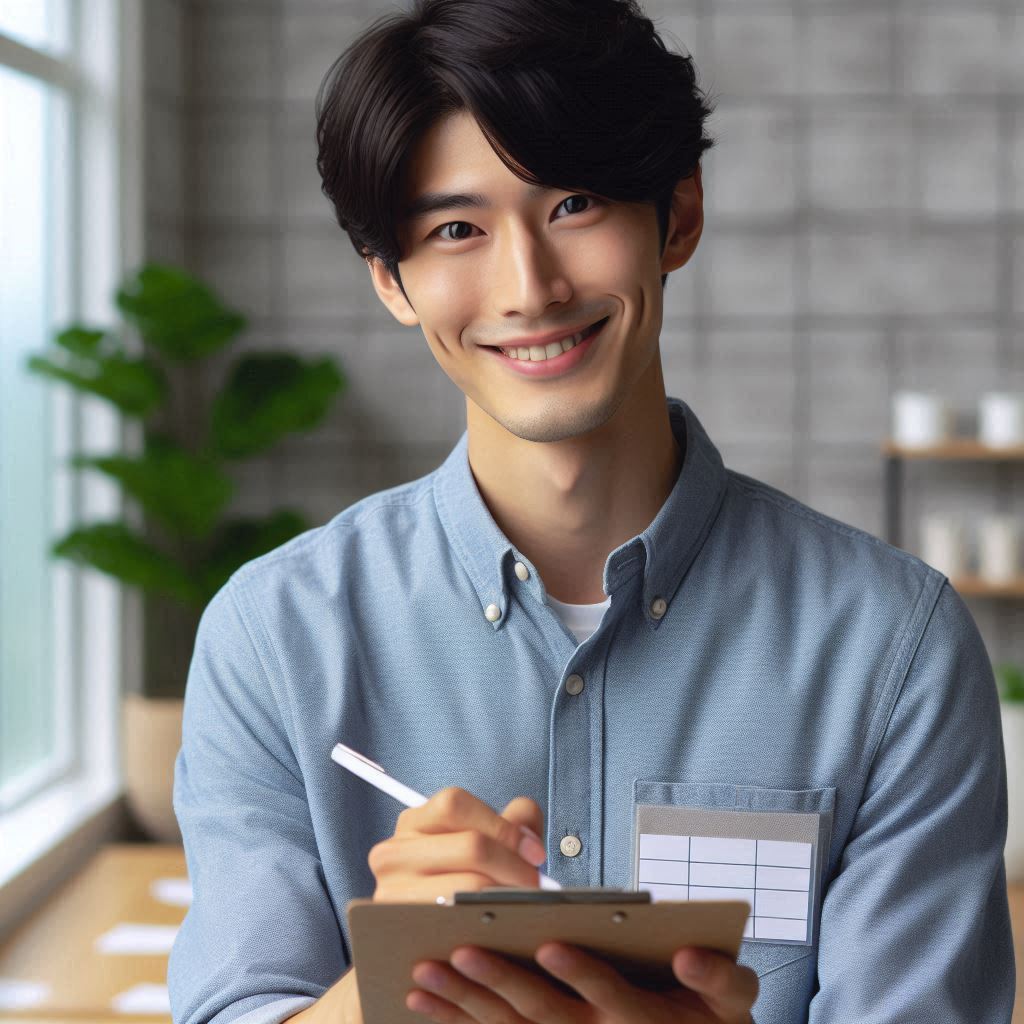Introduction
Event designing and event planning are two crucial aspects of creating successful events.
Event designing involves brainstorming creative concepts and executing them visually, while event planning focuses on logistics, timelines, and coordination.
It encompasses creating the overall look and feel of an event, including themes, decor, and aesthetics.
Event planners, on the other hand, handle the coordination, logistics, and execution of an event from start to finish.
Highlighting the Similarities
Both event designers and event planners work towards the common goal of delivering a flawless event experience.
They collaborate closely with clients to understand their vision and bring it to life.
Communication, creativity, attention to detail, and problem-solving skills are essential for both roles.
Purpose of the Blog Post
This blog post aims to explore the key differences between event designers and event planners.
While their roles may seem similar, distinct variations exist in their responsibilities, skills, and approaches.
By understanding these nuances, individuals can better comprehend the unique contributions each role brings to the overall success of an event.
Education and Skills
Event Designer
Event designers typically have formal education in fields such as graphic design, interior design, or event design.
They often hold degrees or certifications in these areas to enhance their skills and knowledge.
Event Planner
On the other hand, event planners may come from a variety of educational backgrounds, including hospitality management, business administration, or marketing.
They need to have strong organizational and communication skills to excel in their role.
Different educational backgrounds and certifications required for each role
Event designers focus on creating visually stunning experiences, from concept to execution.
They use their creativity and design skills to bring the client’s vision to life and create memorable events that leave a lasting impression on attendees.
Event planners, on the other hand, are responsible for the logistics of an event, such as coordinating vendors, managing budgets, and creating timelines.
They need to be detail-oriented and adept at problem-solving to ensure that events run smoothly and efficiently.
Overall, while event designers and event planners both play crucial roles in the success of events, their educational backgrounds and skill sets vary to meet the different demands of each position.
Read: Top U.S. Cities for Event Designer Opportunities
Transform Your Career Today
Unlock a personalized career strategy that drives real results. Get tailored advice and a roadmap designed just for you.
Start NowResponsibilities
Event Designer
Event designers are tasked with the creative aspects of an event, including creating visually appealing decorations, themes, and ambiance.
They work closely with clients to understand their vision and then bring it to life through their designs.
Event Planner
On the other hand, event planners focus on the practical aspects of event execution.
They are responsible for creating detailed timelines, coordinating with vendors, and ensuring that everything runs smoothly on the day of the event.
How the roles may overlap in certain aspects of event planning
While event designers and event planners have distinct responsibilities, there are certain aspects of event planning where their roles may overlap.
For example:
- Collaboration: Both event designers and planners often collaborate closely to ensure that the overall vision and logistics align seamlessly.
- Vendor Coordination: Event designers may work with vendors to source materials for their designs, while event planners manage vendor contracts and logistics.
- Timeline Management: Event designers need to consider timelines when creating their designs, and event planners need to ensure that the timeline is followed on the day of the event.
- Client Communication: Both roles involve interacting with clients to understand their needs, preferences, and budget constraints.
- Problem-Solving: Event designers and planners must both be adept at problem-solving, whether it’s resolving design issues or handling logistical challenges on the day of the event.
In essence, while event designers and event planners have distinct roles, there is significant overlap in their responsibilities that requires effective communication and collaboration to pull off a successful event.
Read: How to Build a Portfolio as an Event Designer
Client Interaction
Client interaction is a crucial aspect of both event design and event planning.
Let’s delve deeper into how each role approaches client collaboration and communication.
Event Designer: Understanding Vision and Design Preferences
Event designers work closely with clients to bring their vision to life.
They start by collaborating with the client to understand the desired look, feel, and overall aesthetic of the event.
This involves listening attentively to the client’s ideas, preferences, and expectations.
Designers pay close attention to details such as color schemes, themes, decor elements, and layout preferences.
They may create mood boards, sketches, or digital renderings to visually communicate their proposed design concepts to the client.
This visual representation helps ensure that the client’s vision aligns with the designer’s interpretation.
Throughout the design process, event designers maintain open lines of communication with the client.
They seek feedback, make revisions as needed, and ensure that the design reflects the client’s wishes.
Strong interpersonal skills, such as active listening and empathy, are essential in building trust and understanding with the client.
Showcase Your Business Today
Reach thousands of readers actively exploring professional services. Publish your business profile and grow your audience now.
Publish NowEvent Planner: Determining Objectives, Budget, and Goals
Event planners focus on the logistics and execution of an event.
They communicate with clients to determine the event’s objectives, such as the purpose of the event, target audience, and desired outcomes.
Planners also discuss budget constraints to ensure that the event stays within financial parameters.
In addition to objectives and budget, event planners work with clients to establish overall goals for the event.
This could include specific deliverables, success metrics, or performance indicators that the client hopes to achieve.
Planners play a pivotal role in ensuring that the event meets these predetermined goals.
Effective communication is key in event planning, as planners must convey complex logistical information in a clear and concise manner.
They also need to negotiate contracts, secure vendors, and coordinate various aspects of the event to ensure seamless execution.
Building rapport with clients through transparent communication and strong interpersonal skills is essential for successful event planning.
Importance of Strong Interpersonal Skills in Both Roles
Whether as an event designer or event planner, the ability to connect and communicate effectively with clients is paramount.
Strong interpersonal skills, such as active listening, clear communication, empathy, and adaptability, help build trust and rapport with clients.
By understanding the client’s needs, preferences, and goals, event professionals can tailor their services to create memorable and successful events.
Effective client interaction fosters collaboration, builds relationships, and ensures that the end result meets or exceeds the client’s expectations.
In short, while event designers focus on bringing creative visions to life, event planners concentrate on logistical details to ensure a seamless event execution.
Both roles require strong interpersonal skills to engage with clients effectively and deliver exceptional results.
Read: Education Requirements for Event Designers

Day-to-Day Tasks
When it comes to the daily tasks and priorities of event designers and event planners, there are distinct differences in how they approach their roles.
Event designers are more focused on the visual and aesthetic elements of an event, while event planners are more concerned with the logistics and coordination.
Event Designer
They spend their days brainstorming creative concepts for events, translating ideas into mood boards, and selecting decor elements that will bring their vision to life.
They work closely with clients to understand their preferences and design events that align with their vision.
Additionally, event designers often collaborate with other creative professionals such as florists, lighting designers, and graphic artists to ensure that every detail of the event is cohesive and visually impactful.
They are responsible for creating a cohesive look and feel for the event that resonates with the client and leaves a lasting impression on attendees.
Event designers also stay up-to-date on the latest trends in event design, attending industry events and trade shows to discover new decor elements and inspiration for their work.
They have a keen eye for detail and are skilled at creating visually stunning environments that enhance the overall guest experience.
Event Planner
On the other hand, event planners are focused on the logistics and coordination of an event.
They work tirelessly to create detailed event timelines that outline every aspect of the event, from setup and breakdown to presentation schedules and speaker arrangements.
Event planners are responsible for ensuring that each element of the event runs smoothly and on schedule.
Event planners also play a crucial role in managing guest lists and RSVPs, tracking attendee numbers, and coordinating seating arrangements.
They work closely with vendors such as caterers, venues, and entertainment providers to ensure that all logistical aspects of the event are in place and that vendors are meeting deadlines and expectations.
Furthermore, event planners are skilled in problem-solving and quick thinking, as they often need to handle unexpected issues or changes to the event schedule on short notice.
They are adept at multitasking and managing multiple moving parts simultaneously, ensuring that every detail of the event is executed flawlessly.
In fact, while event designers focus on the visual and aesthetic elements of an event, event planners are primarily concerned with the logistics and coordination.
Both roles are essential in creating successful and memorable events, each bringing a unique set of skills and expertise to the table.
Read: Event Designer Career Path: Steps to Success
Gain More Insights: Building a Creative Director Network Online
Event Execution
Event Designer
When it comes to event execution, the Event Designer plays a crucial role in creating the visual experience for attendees.
They focus on the overall look and feel of the event, including the decor, lighting, and overall ambiance.
The Event Designer ensures that the event space is visually appealing and aligned with the client’s vision.
They pay attention to every detail to create a cohesive and aesthetically pleasing experience for guests.
Event Planner
On the other hand, the Event Planner is responsible for ensuring that all logistical aspects of the event run smoothly on the day of the event.
Showcase Your Business Today
Reach thousands of readers actively exploring professional services. Publish your business profile and grow your audience now.
Publish NowThis includes coordinating vendors, managing timelines, and overseeing the execution of the event timeline.
The Event Planner ensures that all moving parts come together seamlessly to create a successful event.
How both roles work together to bring the client’s vision to life during an event
While the Event Designer focuses on the visual elements, the Event Planner ensures that the event’s logistics are well-organized and executed without a hitch.
Both roles are essential in bringing the client’s vision to life during an event.
The Event Designer creates the physical atmosphere, while the Event Planner ensures that everything runs smoothly behind the scenes.
Collaboration between the Event Designer and Event Planner is key to a successful event.
The Event Designer works closely with the Event Planner to ensure that the visual aspects of the event complement the logistical execution.
They communicate effectively to align all elements of the event and create a cohesive experience for attendees‘
In summary, while the Event Designer focuses on the aesthetics and visual aspects of the event, the Event Planner ensures that all logistical details are executed flawlessly on the day of the event.
Both roles are equally important and work together to bring the client’s vision to life during an event.
Their collaboration ensures a well-rounded and successful event for all involved.
See Related Content: What Does an Interactive Media Designer Do?
Discover More: Effective Web Design Strategies for E-commerce
Industry Trends and Innovation
When it comes to industry trends and innovation, both Event Designers and Event Planners have distinct focuses.
Event Designer
Event designers need to stay updated on design trends, decor styles, and creative concepts.
They are responsible for creating visually stunning and cohesive aesthetics for events.
Event Planner
On the other hand, event planners need to keep abreast of event technology, software solutions, and industry best practices.
They are focused on the logistical aspects of event planning and execution.
Importance of Creativity and Innovation
While both roles are important in the events industry, creativity and innovation play a crucial role in event designing and planning.
Event designers rely heavily on their creativity to conceptualize unique and memorable event experiences.
They work with colors, textures, and spatial arrangements to create immersive environments that leave a lasting impression on attendees.
On the other hand, event planners leverage innovation to streamline processes, enhance guest experiences, and manage budgets effectively.
They use technology tools and software solutions to automate tasks, track RSVPs, and coordinate logistics seamlessly.
Ultimately, a successful event hinges on the collaborative efforts of both event designers and event planners, combining creativity with organizational skills to deliver exceptional experiences that exceed client expectations.
Learn More: Importance of Leadership in Creative Directing
Explore Further: Iconic Furniture Designs and Their Designers
Conclusion
Event designers focus on creating the visual and aesthetic elements of an event, while event planners oversee the logistics and coordination.
Event designers are responsible for the overall look and feel of an event, including decor, lighting, and spatial design.
On the other hand, event planners manage timelines, budgets, vendors, and guest lists to ensure the event runs smoothly.
Despite their distinct roles, event designers and planners work hand in hand to bring a vision to life and create unforgettable experiences.
It is essential to recognize the complementary nature of these roles in crafting successful events that leave a lasting impression.
Readers are encouraged to assess their strengths and interests to determine whether event designing or event planning aligns with their career aspirations.
By understanding the key differences between event designers and event planners, individuals gain insight into the specialized skills required for each role.
Ultimately, both event designers and event planners play integral roles in the event industry, contributing to the success of diverse and dynamic events.
[E-Books for Sale]
The Big Book of 500 High-Paying Jobs in America: Unlock Your Earning Potential
$19.99 • 500 High-Paying Jobs • 330 pages
Explore 500 high-paying jobs in America and learn how to boost your career, earn more, and achieve success!
See All 500 High-Paying Jobs of this E-Book
1001 Professions Without a Degree: High-Paying American Jobs You Can Start Now
$19.99 • 1001 Professions Without a Degree • 174 pages
Discover 1001 high-paying jobs without a degree! Unlock career tips, skills, and success strategies for just $19.99!




